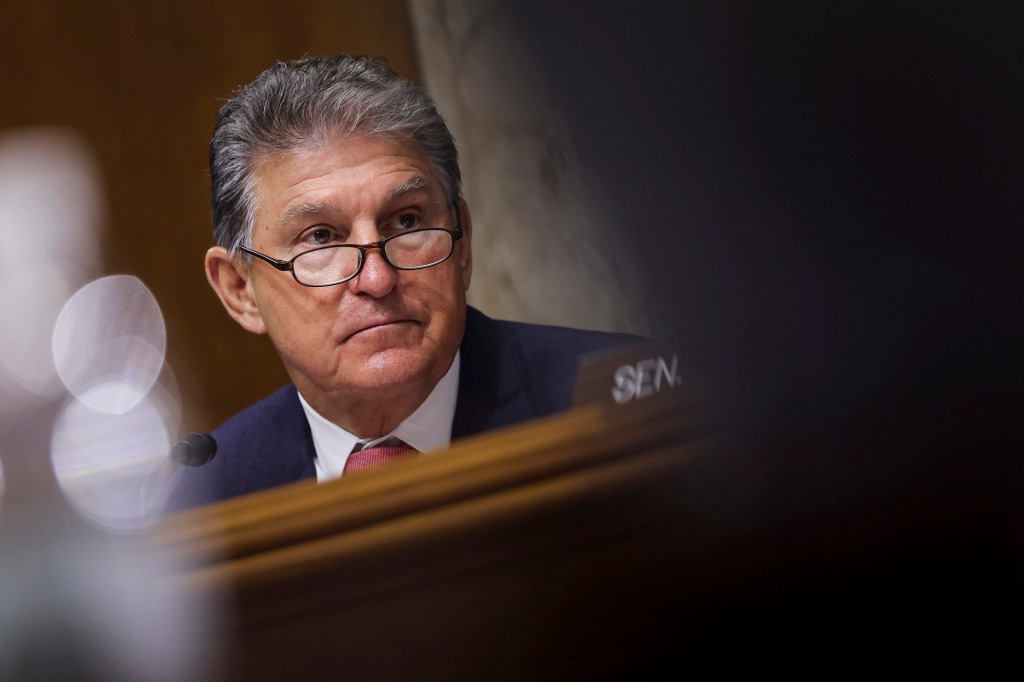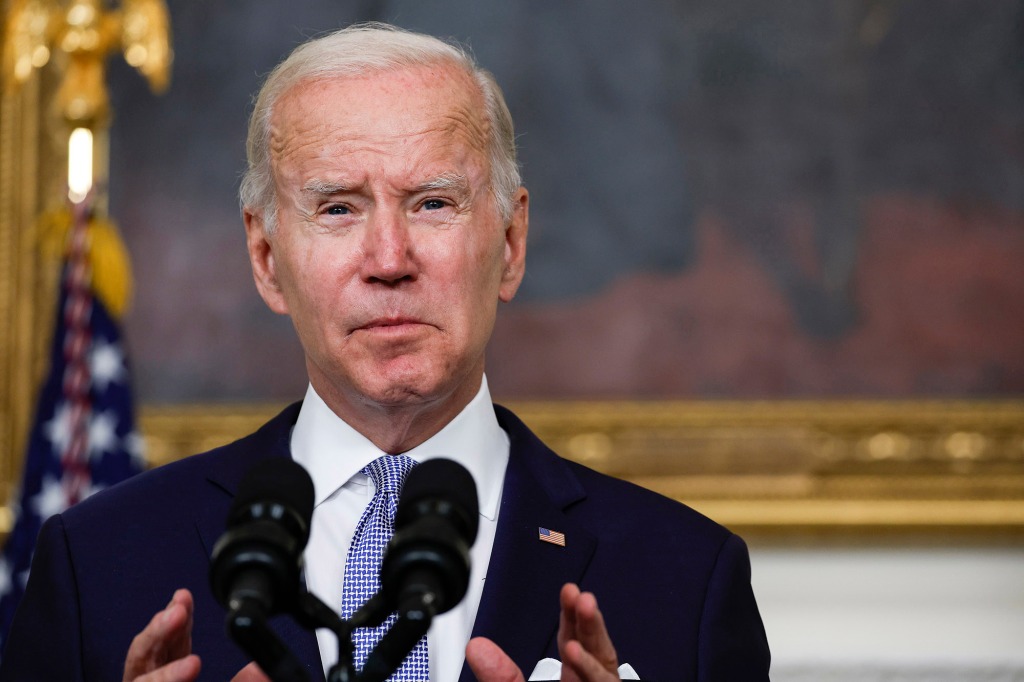Joe Manchin-Chuck Schumer spending deal won’t help inflation
Senate Democrats’ newly agreed $739 billion Inflation Reduction Act not only doesn’t live up to its name, but could actually cause a slight increase in prices over the next two years, according to an analysis by the University of Pennsylvania’s Wharton School of Business.
The Friday report by the Penn Wharton Budget Model estimated that the bill “will produce a very small increase in inflation for the first few years, up to 0.05 percent points in 2024,” potentially delivering a new blow to President Biden’s agenda.
“We estimate a 0.25 percentage point fall in the PCE price index by the late 2020s,” the analysts added. “These point estimates, however, are not statistically different than zero, thereby indicating a very low level of confidence that the legislation will have any impact on inflation.”
The budget model also suggested that the bill would have little effect on the rest of the US economy, with no impact on gross domestic product forecast for the 10 years its provisions would be in effect — and just a 0.2% increase in GDP predicted by 2050.
Inflation hit an annual rate of 9.1% in June — the worst jump in prices since 1981 — following a gradual increase over the past year. Republicans blame the price hikes mostly on federal spending, but the Biden White House has attributed them to COVID-19, Russia’s invasion of Ukraine and corporate price-gouging.
White House press secretary Karine Jean-Pierre defended the bill at her Friday press briefing, insisting “it simultaneously addresses several key and long standing problems facing our economy and society.”
“First on inflation, there is a simmering debate on the cause of inflation, but whatever side one takes in that debate, this bill is a step forward and that’s how we see it as well,” Jean-Pierre said.

“For those worried about excessive demand, there is more than $300 billion in deficit reduction — that is also very important as we talk about fighting inflation, that $300 billion of deficit reduction … it will help fight inflation.”
Centrist Sen. Joe Manchin (D-WV) and Senate Majority Leader Chuck Schumer (D-NY) unveiled the Inflation Reduction Act Wednesday evening after the Senate passed a $280 billion computer-chip bill with some bipartisan support.
The legislation, which would subsidize purchases of environmentally friendly technologies and increase taxes on wealthy people and businesses, came seven months after Manchin pulled the plug on initial spending negotiations, citing soaring inflation.
The new package — a pared-back version of Biden’s Build Back Better Act — includes $433 billion in new spending, offset in theory by $739 billion in tax increases. The difference would be put toward paying down the federal budget deficit.
The announcement of the Manchin-Schumer deal stunned much of Washington due to the widespread assumption that the West Virginian was opposed to reviving the large budget reconciliation plan.
According to figures released by Manchin and Schumer, the new bill would fund $369 billion in environmental programs and $64 billion in continued ObamaCare subsidies.
The Democrats say the spending would be offset by $313 billion coming from a new 15% corporate minimum tax, $288 billion in savings by allowing Medicare to negotiate drug pricing, $124 billion in stricter IRS enforcement and $14 billion in a carried interest taxation change.
The Wharton analysis suggested the deficit would be reduced by $248 billion over 10 years if the bill passed — but cut that estimate to $89 billion if the ObamaCare subsidies were made permanent.
It’s unclear if the Congressional Budget Office ultimately will concur with the calculations or if the calculated revenue streams match the time periods of new costs — or if additional inflation analysis will confirm the initial Wharton assessment.

Biden said in Thursday remarks that the bill “gives folks rebates to buy new and efficient appliances, to weatherize their homes and tax credits for heat pumps and rooftop solar.”
“It also gives consumers a tax credit to buy any electric vehicle or fuel cell vehicle — new or used. And a tax credit for up to $7,500 if those vehicles were made in America,” Biden said.
The electric vehicle tax credit provision would be a major win for Biden counselor Steve Ricchetti’s lobbyist brother, Jeff Ricchetti, who was paid $280,000 since last year to lobby on behalf of such policies for General Motors, which makes electric vehicles.
The legislation can pass with a bare majority in the evenly divided Senate — with Vice President Kamala Harris breaking a tie vote in Democrats’ favor — pursuant to special budget rules, but all Democrats must stick together.
Centrist Sen. Kyrsten Sinema (D-Ariz.) has not publicly announced her position on the bill and Sen. Bob Menendez (D-NJ) voiced concern about the fact that it doesn’t repeal the Trump-era $10,000 cap on state and local taxes that can be deducted before paying federal taxes.
Biden led Democrats in passing two major spending bills last year that critics said fueled inflation, but which the White House said kept the economy humming while improving the future flow of goods, potentially lowering prices.
Biden’s $1.9 trillion economic stimulus bill, the American Rescue Plan Act, passed without Republican support and wasn’t offset by new revenue. The subsequent $1.2 trillion bipartisan infrastructure bill added $256 billion to the federal deficit, according to the Congressional Budget Office.
Read the full article Here


